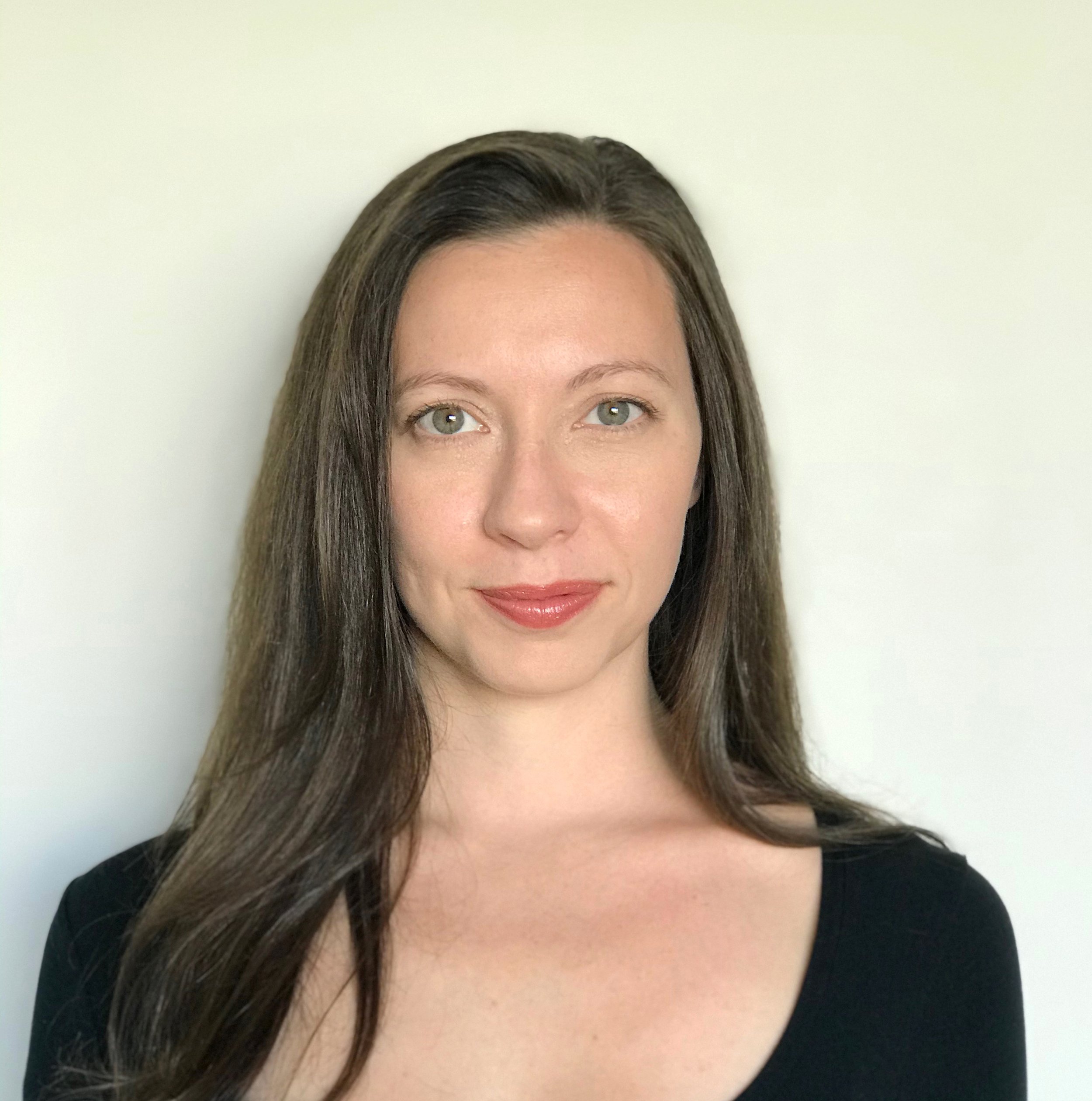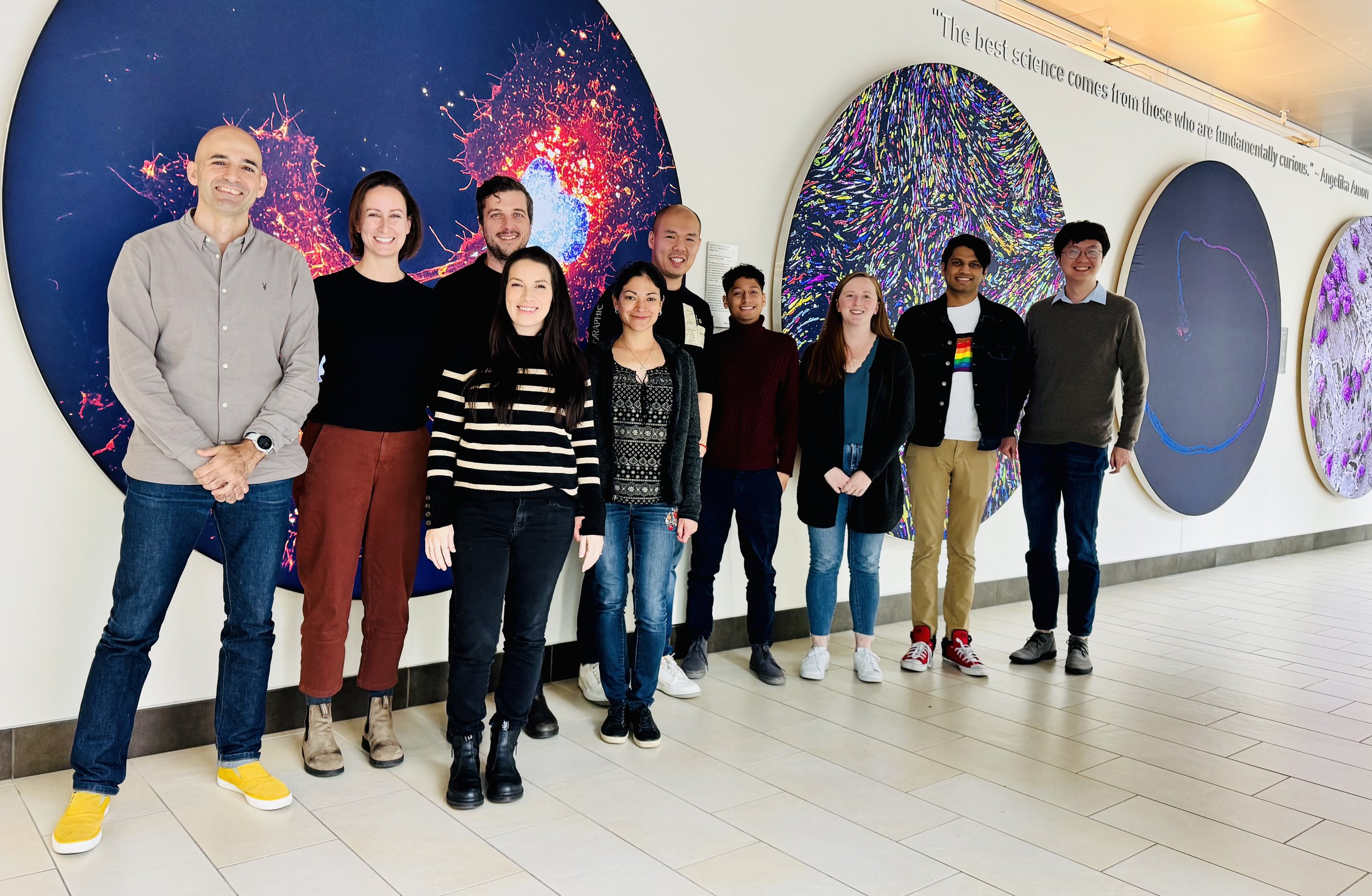November Bulletin
Issue 86
Community Notices
November Research seminar
Next open Marble Center seminar is on Monday November 13 (4-5pm, Luria Auditorium) with a presentation by Dr. Laura Maiorino of the Irvine lab on “Saponin/MPLA nanoparticles: a new adjuvant for experimental medicine vaccine studies.“ Following her talk, we will host Dr. Abigail Lytton-Jean, Scientific Director, for an update on the Peterson (1957) Nanotechnology Materials Core Facility.
Laura Maiorino, PhD
Abigail Lytton-Jean, PhD
REMINDER: register now for the spatial Biology Lunch and Learn seminar (November 15, noon-1pm, Luria Auditorium)
Join the Leica team and other MIT researchers to explore the latest technologies and research that utilize spatial mapping to uncover molecular insights in oncology, neurology, and immunology. Together with leading experts, we will examine how a deeper understanding of the tissue microenvironment, using advanced imaging techniques, can shed new insights into diseases such as metabolic disorder and cancer.
32nd Annual Irwin M. Arias Symposium (November 16, 9am-5pm at the Broad Institute)
This unique one-day program brings together hundreds of leading biomedical scientists and physicians from across the globe and is designed to bridge the remarkable advances in basic biology and engineering with the understanding of liver diseases and their treatment. Research presented over the past 32 years has led to advances in the diagnosis and treatment of virtually all liver diseases in children and adults. With plenary talks from renowned researchers and a collection of three-minute micro talks delivered by trainee scientists, the Arias Symposium is a model in ‘bridging’ between the academic, industrial, and clinical research communities – even across disciplines. Historically, the Arias Symposium has been an in-person event until the pandemic caused a shift to a virtual format. For 2023, the symposium will be offered both in-person and virtually. Registration is free.
In the News
The Marble Center spotlights miniaturized biotechnologies at the White House Technology Showcase!
We had an incredible day in Washington, DC, spotlighting nanomedicine for cancer care as par of the White House Technology Showcase. The theme for the event was “AmericanPossibilities” and we highlighted excited new approaches for early detection, imaging, vaccines and therapeutics. More info will be shared soon!
Our booth at the event with (L-R) Drs. Ana Jaklenec, Jeremy Li (Cision Vision, Inc.), Jooli Han, and Tarek Fadel
How Church and Langer Make the Impossible Possible
(Gail Dutton, GEN) The laboratories of George Church, PhD, professor of genetics at Harvard Medical School, and Robert Langer, the David H. Koch Institute Professor, Massachusetts Institute of Technology, are legendary for their ability to spin out biopharma companies and entrepreneurs. Both men have each co-founded nearly 50 companies and have advised dozens of companies. Not surprisingly, they share a number of commonalities that catalyze success for virtually anyone in their labs willing to seize it.
Langer’s 100+ member team focuses on drug delivery mechanisms and tissue engineering. Church’s 86 team members concentrate on genetics and related tools development. Within those categories, lab members’ projects are wide-ranging. Church and Langer provide insights and advice, but typically are not involved in individual experiments. Read more…
Announcing the 2023-2024 Class of Convergence Scholars
(Koch Institute) The Marble Center for Cancer Nanomedicine and the MIT Center for Precision Cancer Medicine (CPCM) are pleased to announce the 2023-2024 class of Convergence Scholars. Founded in 2017, the Convergence Scholars Program (CSP) is designed to enhance the career development of aspiring independent scientists with diverse interests across academia, industry, science communication, and STEM outreach. To achieve this mission, CSP organizes thematic workshops, one-on-one mentoring, networking opportunities, and interactive group social hours. Scholars are also encouraged to develop new research collaborations with other class members, particularly at the intersection of biology and engineering, and refine their “brand” of science and its impact on society. By tailoring individual goals with training opportunities and connections through MIT, the CSP ultimately seeks to prepare postdocs for a critically important yet often overlooked component of a scientist – life beyond the bench.
2023-2024 class of Convergence Scholars. (From left to right) Drs. Tarek Fadel (Founding Director), Allison Greaney (Langer Lab), Corey Stevens (Belcher Lab), Asheley Chapman (Irvine Lab), Elen Torres (Spranger Lab), Bocheng Wu (Koehler Lab), Jonuelle Acosta (Hemann Lab), Margaret Billingsley (Hammond Lab), Vardhman Kumar (Bhatia Lab), Yizong Hu (Anderson Lab).
As part of their award package, CSP scholars will receive a supplemental stipend for use towards their career development. New to this year, stipends are covered by philanthropic support, including a generous gift from Michael and Lisa Ullmann. The Koch Institute and CSP leadership are grateful to our broader community for their support in bolstering postdoctoral resources and investing in future scientific leaders. Please join us in congratulating the Class of 2024 Convergence Scholars:
Jonuelle Acosta (Hemann Lab): Jon is leveraging precision genome editing technologies to investigate the role of specific genetic variants on cancer progression and response to therapy, with a focus on leukemia and lung cancer.
Margaret Billingsley (Hammond Lab): Margaret is synthesizing polymeric layer-by-layer nanoparticles for the targeted delivery of combinatorial therapies—including small molecules and proteins—to ovarian cancer in the minimal residual disease stage.
Asheley Chapman (Irvine Lab): Asheley is developing novel therapeutic strategies using antigen-drug conjugates to target ineffective B cells and optimize vaccine-induced immunity in germinal centers.
Allison Greaney (Langer Lab): Allie is engineering lung tissue models that recapitulate both normal physiology and pathology such as cancer, with a long-term goal of generating functional tissues for transplant and disease applications.
Yizong Hu (Anderson Lab): Yizong is analyzing the underlying mechanisms of early-stage inflammation by mRNA vaccines – both at the mRNA and carrier levels – with a goal of reducing reactogenicity without sacrificing immunogenicity.
Vardhman Kumar (Bhatia Lab): Vardhman is constructing multiscale, functional biological platforms consisting of shear thinning biomaterials, stem cells, and enzyme sensors to serve as a bridge to liver transplantations, particularly relevant in cases of localized hepatocellular carcinoma or cholangiocarcinoma.
Corey Stevens (Belcher Lab): Corey is characterizing unique glycosylation patterns on the surface of cancer cells and identifying their unique protein binders for applications in early cancer detection.
Elen Torres (Spranger Lab): Elen is studying the immunosuppressive mechanism of a known stem cell regulator, SOX2, in mediating poor anti-tumor immune responses in non-small cell lung cancer patients.
Bocheng Wu (Koehler Lab): Bocheng is screening small molecule compounds to inhibit transcriptional drivers of T cell exhaustion and thus restore anti-tumor T cell functions.
Jobs
Research Engineer (nanomedicine, mRNA), Brigham and Women's Hospital.
BWH is seeking a Research Engineer in the Laboratory for Translational Engineering at Brigham and Women’s Hospital with a background in biomedical engineering, chemical engineering, material science, pharmaceutical sciences or closely related field. Our research group consists of chemists, biologists, engineers, pharmaceutical scientists, and physicians and focuses on developing clinically relevant solutions to a host of challenges such as infectious diseases, metabolic diseases, and cancer. This project focuses on the highly exciting and burgeoning area of RNA delivery. Our group has pioneered several approaches in delivery of biologics across the gastrointestinal mucosa including RNA delivery. The goal of the project is to design systems for mRNA delivery in the gastrointestinal tract. The project will involve novel material synthesis (polymers and lipids) for and formulation development of mRNA nanoparticles. Nanoparticles will be characterized for their physicochemical properties and in vitro transfection. Lead formulations will be interfaced with chemical and physical permeation enhancers and tested for uptake in the gastrointestinal tract. Read more…
Post-Doctoral Fellow – Nanoparticle Immunotherapies, AstraZeneca.
In this position, you will join the AstraZeneca (AZ) Nanomedicine team developing targeted nanoparticle therapies with a focus on application in immunotherapies. The rapidly growing field of CAR-T cell therapies could synergize with advanced targeted nanomedicine technologies to bring next-generation immunotherapies to the clinic. Current CAR-T cell therapies require individualized and laborious ex-vivo procedures for production of therapeutic end-products, which could be simplified through application of nanotechnology for CAR-T cell production in vivo. Various groups have proven this concept through viral delivery of CAR genes to T lymphocytes; however, application of targeted nanoparticle technology could further simplify this process with synthetic vectors. Read more…
Funding opportunities
| Funding Source | Grant ID | Deadline | Elsa U. Pardee Foundation: Cancer Research | N/A | December 15, 2023 | Sanofi iDEA-iTECH Awards | N/A | December 15, 2023 |
|---|













